Virtual Realities: Volume no. 11, Issue 1
(click excerpt to view full work)
That’s a good story. Why does he say that?
because there’s no late night TV in the other dimension
and I’m tired of gimmicks. I never wanted to be the person
who spoke quietly. I never wanted to be afraid of each and every
star—like eraser-torn holes in a blue-black sheet of paper
warm from the printer. I was drawn, did I tell you? That he studied
and bound my each loose turn. My own phantom limb pains
each time he traces my penciled edge—
What are you afraid of?
hillsides. The right way home. I have learned my own name
I have said my own name. I have buried the sheets that I slept on.
I have slept with the windows unlocked
and racked each stranger’s elbow
for a tiny taste of want
“Reimagining The Interrogation of Betty Hill” by A.D. Lauren-Abunassar
▱
Two years later, on a cold Hanukkah night, we got the call. My sister and I were on our way home. I picked up the phone because she was driving. It was a shooter, Mom explained, at Dad’s store. By the time we got there they’d taken Dad away in a body bag, along with Mrs. Frishman, who used to babysit us, and Shmuel, who had escaped the Nazi death machine when he was ten, but hadn’t survived getting a chicken sandwich. It was a Neo-Nazi. The police caught him as he was escaping. He was a year younger than me.
Two weeks after a tear-filled night in which I took a copy of all that remained of my father and placed it in what was Nazi Berlin in all but name, my sister came by to visit. I brought her with me into the virtual reality.
“Is it safe?” she asked sensibly as we walked by a warped swastika flag.
“We’re technically in my living room.” I reminded her.
“A Kosher Deli in Nazi Germany” by Noa Covo
▱
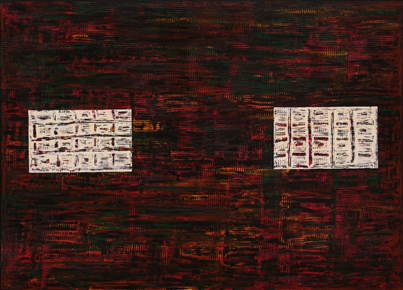
“Chasing Brick Shadows” by Maroula Blades
▱
Sometimes, during the summer season, the mountain that the Longhouse backs into may catch fire. The pine trees’ smoke can be seen from the flammable gas pumps below. During these moments customer after customer asks if the employees know about the fire. There are signs posted stating that the employees know about it, everyone talks about it; still they ask. The employees assure them that everything is fine. When the customer is out of earshot, they turn to one another and add a tally to a paper titled “asked about the fire.” The page fills up quickly
“Welcome to The Longhouse” by Leah Myers
▱
I talk about my body, my body,
like the remains of an aircraft,
my tears like a lake sitting
deep inside a forest …
the form & colour are the way of silence,
the art of renaming into negatives,
the prosthetic limbs of comfort;
my body, my body, my gift of scars,
lamp of my soul buried in sand,
the sour wine sweeter only
on my lips, on my valium tongue.
“Smokescreening” by Aremu Adams Adebisi Adebisi
▱
Ron knows that he doesn’t control everything, and he is gradually getting to be okay with that. I think gender identity (and other aspects of identity) can feel that way. We might want to be or not want to be … and our desires, our attempts at control and self-determination, they don’t have any effect. That’s fate. That’s self. Better to love it.
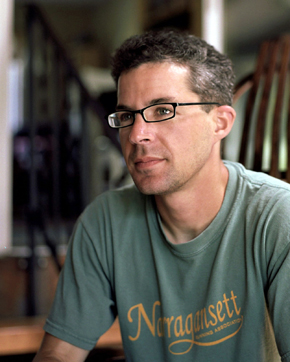
An interview with Alex Myers
▱
دیگر به خواب من نمیایی
با هر بهانهای
این خانه بی خیال تو خالیست.
تنها نشانههای تو را خواب دیدهام.
گلدان روی رف که ترک برداشت
هر چند در خواب –
یک بار هم نشد که بیایی.
این خانه خانهی تو مگر نیست؟
You used to visit me in my dreams
for any reason.
Without your image, this house is empty.
I’ve seen only your signs in my dreams:
the flowerpot on the shelf that cracked,
even though in my dream —
You never came back even once.
Isn’t this house yours?
“Ghazal” & “Anna Karenina / October 18, 1910” by Hasan Alizadeh translated from the Persian by Kayvan Tahmasebian and Rebecca Ruth Gould
▱
One hot week of my birthday, there were no more fish. Our shared pool of water had dried out, and the river that fed it only went up to my ankles. We mixed petrol with kerosene and cooking oil to get us to the beach, but by the time we reached the shore, a congregation of pink saris, green lungis, and bare chests had beaten us. The trip back was bitter and bumpy, and I could taste sour and worry in Appa and Amma’s mouths. That week lasted a year, and then two more. Guhan and Amma died after getting sick eating things from the river floor they shouldn’t have. We had to cremate them under the burning sun, sharing wood with the neighbors who did the same for their own. Appa’s face turned ashen and Nandini held my hand as we watched the smoke curl.
“Simzone” by Vikram Ramakrishnan
▱
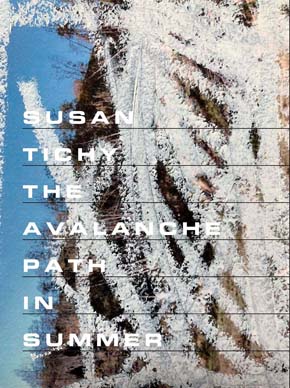
A practical backpacker carefully considers each item before it’s packed. Is it useful? is it guidance? A gram-conscious reader brings (at 87 g) “The Pocket Emily Dickinson” for “A Quartz contentment, like a stone —” “The Avalanche Path in Summer” (190 g): “ ‘Look for masters / find paths’ // says Wang Wei /—or did I write that // in the trail guide?” Is it solved? is it not solved? Yes, and yes.
“The Avalanche Path in Summer” by Susan Tichy
▱
Interlude
Reloaded. Speed, down by the river’s edge. High cliffs. Night riding, lights off. Rush, rush. Motorcycle two-wheel motion. Excellent adventure. Constant time, he’s the watcher, a scanner darkly avoiding a bogus journey. A street king, Keanu Reeves knows more about his 1972 Combat Norton than most mechanics. The gift. Dangerous liaisons, this man and his bike flying under the influence. Letting go.
“Please Don’t Act, Keanu Reeves” by Thomas Farringer-Logan
▱
Afmáður, þorrinn, flekklaus, mér þykir það leitt en ég ætlaði bara að standa hérna og verða ekki listaverkin. Fáist ekki um mig, ég ætlaði bara að standa hérna einn og hafa ekkert með neitt að gera, mér þykir það leitt, en ég vildi gjarna fá að vera einn núna.
Mér þykir það leitt en ég tek ekki í mál að listin hafi áhrif á mig. Hún er mjög viðkvæm fyrir hitabreytingum og ég er holdið kulda klætt. Kostar óhemju að flytja. Alla seðlana í heimsveldi ilmvatns. Og ég vil bara standa kyrr. Afmáður. Ég vil bara halda mér flekklausum. Ósnertum.
Erased, faded, unblemished, I’m sorry, but I meant to stand here and not become the artwork. Don’t mind me, I just meant to stand here in solitary and not have anything to do with anything, I’m sorry, but I just wanna be alone right now.
I’m sorry, but I refuse to have the art move me. It is extremely sensitive to changes in temperature and I am cold made flesh. It costs fortunes to move. All the cash in an empire of perfume. And I just wish to stand still. Erased. I wish to remain unblemished. Untouched.
“A poem about the art of standing in a gallery” by Eiríkur Örn Norðdahl translated from the Icelandic by Eiríkur Örn Norðdahl
▱
The only way a camera can find your face
is by mapping the edges and the eyes.
I paint my pores so that they blur
into my skin, then outline my eyes to sharpen them.
All the machines are nearsighted now
and celestial bodies move too fast—
“Proof of Blurriness” by Erika Luckert
▱
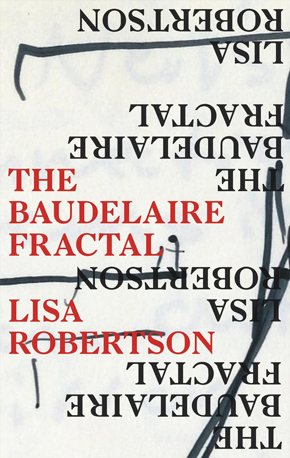
Hazel Brown is a poet who has been written by a novel. The text is the garment she dons to become the author of Baudelaire’s works.
“The Baudelaire Fractal” by Lisa Robertson
▱
I spun around to assess Scott’s reaction and offered my opinion in a scant whisper. “A deer? Bighorn?” His shrug conveyed his answer—maybe. Without a word, we both leaned into our paddles in hopes of a glimpse of the animal. But as we carved our canoe around an ancient wall of rock, we saw nothing. The man or beast had eluded us while the sound continued to tease our ears. Galumph, galumph, galumph.
By then, our senses were as sharply-honed as the edges of the cliffs that squeezed us on either side. The splashing was distinctly human in its regularity and gait, but eerily non-human in its speed and agility. Who could possibly wade at a pace faster than our canoe could glide? We ceased paddling and looked at each other. The only possible explanation was the most irrational one—we were hearing a ghost, wading through a creek that no longer existed.
“Footsteps of Fiftymile” by Christina D. Vojta
▱
It’s like you say in the ads, “Move on without letting go.” I couldn’t say goodbye to grandma, even though she was on my ass when she was alive. I can’t say goodbye to Clyde and them, even though they’re as good as ghosts. If I know that they’re looking in that altUr and seeing who I would have been, then maybe I’ll get strength from that.
“altUr“ by Ted Hayden
▱
Me presentó de modo rimbombante, con esa exageración de méritos que nos hace sentir miserables. No me ofendí porque presentó del mismo modo a la mujer que tenía más cerca. Se llamaba Yvette, diplomática francesa de unos cuarenta años, alta, delgada, piel rostizada, con una sonrisa fija, perfeccionada por muchos años de oficio y una mirada encendida que no quería separarse de Dick. La otra amiga, un poco menor que Yvette, tenía la piel blanca y suave de quien solo ha recibido sol cuando ha querido y un pelo negro y abundante que bajaba enroscándose hasta los hombros. Bailaba como decidida a estar contenta a pesar de lo que fuera, con esa seguridad exagerada de los intranquilos. Me miró desde unos ojos negros, potentes, comprimidos, que parecían decirme algo raro y urgente. Cuando extendió su mano, no sé por qué, se me ocurrió la modestia insidiosa de una frase de tango.
—Mucho gusto, Manuel, yo soy un pobre esqueleto que a mí mismo me da horror.
He introduced me in this flamboyant way, with that exaggeration of our virtues that makes us feel miserable. I wasn’t offended because he introduced the woman nearest him in the same way. Her name was Yvette, a French diplomat, about forty years old, tall, thin, roasted skin, with a permanent smile perfected by many years in the trade, and flaming eyes that didn’t detach from Dick. The other friend, a little younger than Yvette, had the white, soft skin of someone who’s received sunlight only when she desired to, and black abundant hair that dropped curly on her shoulders. She danced like she had decided to be happy against all odds, with the exaggerated confidence of the restless. She looked at me through dark eyes, potent and compressed, that seemed to communicate a weird and urgent message. When she extended her hand, I don’t know why, I recalled the insidious modesty of that line from a tango song and said, “Nice to meet you, I’m Manuel, a poor skeleton who even horrifies himself.”
“The Night of the Mitochondrion” by Luis Miguel Rivas Translated from the Spanish by Valentina Calvache
▱
Our brains are flooded, and we are walking on the street and AJ is talking about suicide. He is talking about suicide and I am listening because my father listened. And in the absence of my father, I must now do my best to copy and comment on everything he says.
Imagine a triangle with my father on top. Imagine what happens when the top of the triangle falls down and breaks into ash. The bottom two points can no longer look up, but only at each other. After six years, AJ and I—we are revisiting this whole friendship thing again.
“Melody for a Place” by Ross Gormley
▱
Fifteen years had passed since my father never returned to Seat 14, Row A after promising two Camden Yards hot dogs, and now he’s on the phone, out of courtesy, he says, telling me our family possesses a gene that eats away at your vision—and at that exact moment, I see a floater crawling like a worm across a Kodak lens in the setting sky and think, oh for the love of God, why did it have to be now—why now do I get retinitis pigmentosa.
“Early Onset” by Matt Gillick
▱
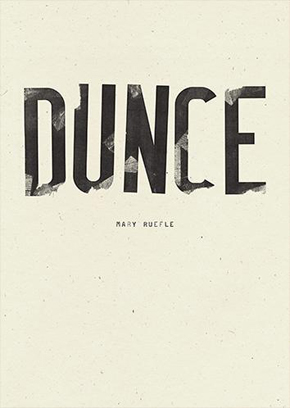
Here in this empty intimacy of the whole world, in our double lives, there are gnomes and cakes and berries and birds and diapers and rain, and pins held in the teeth, making a sound like rain. It might seem cute, and it is, and it isn’t. We are of it and apart from it.
“Dunce” by Mary Ruefle
▱
We sail through the greenery, arrive at the fountain—and he’s there.
The prince, we call him.
The hazy description I elicited from an equally vague Rebecca about her interlocutor would never have sufficed for a creation—so I pored over her sparse intake form and did some internet sleuthing. I searched … I tried her workplace, a mediocre state university—a nonexistent social media presence—her listed church—her volunteer activities—nothing—no mention of her …
I delved deeper… What unrequited ache dwelt within her?
Two jobs previously—a position at a reputable international think tank …
Cross-referenced with her casual reference to Singapore …
A Google search for an international conference in her field, with an American guest speaker:
Dr. Jeremy McKinnon represented my very best guess.
And—the sweet merciful imps that pilot the internet had linked to a YouTube video of his presentation. Marjorie, Howard, and I inhaled, pressed Play.
“Alternative Pasts, LLC” by Linda McMullen
▱
Soon after, the vote, the thuck and spew of tear gas, silent sirens, fires on the streets … In Sri Lankan hills smothered in tropical forest, I watch telecom workers dripping engine oil on fastened leeches, the wet, wormy bodies curling and writhing on contact, the men wiping them to the ground and returning to the job of repairing the generator, made in Larne, Co. Antrim.
“Year” by Dermot O’Sullivan





